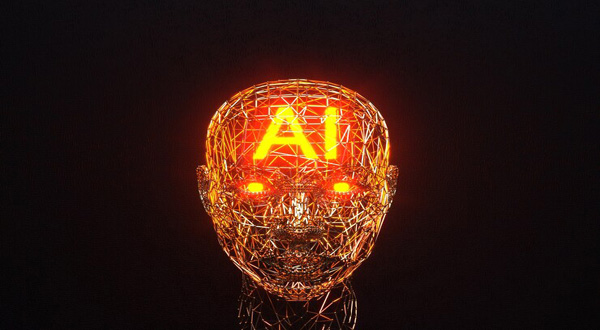Unveiling the Origins: When was AI First Defined?
- Update Time : Thursday, March 7, 2024
- 23 Time View

Unveiling the Origins: When was AI First Defined?: In the bustling realm of technology, artificial intelligence (AI) stands as a pinnacle of innovation. But when did this groundbreaking concept first emerge from the depths of imagination into the realm of definition? Let’s embark on a journey to uncover the roots of AI and its evolution over time.
Unraveling the Past: The Dawn of AI
Artificial Intelligence Defined:
Artificial intelligence, or AI for short, is the intelligence exhibited by machines or software, enabling them to perform tasks that typically require human intelligence. These tasks encompass a broad spectrum, ranging from problem-solving and learning to understanding natural language and recognizing patterns.
Origins in Ancient Mythology:
The concept of artificial beings endowed with intelligence traces back to ancient mythologies and folklore. Tales of automatons crafted by skilled artisans captivated imaginations, hinting at humanity’s fascination with creating intelligent entities.
The Birth of Modern AI:
However, the formal definition and exploration of AI emerged in the mid-20th century. In 1956, at the Dartmouth Conference, a group of pioneering researchers coined the term “artificial intelligence” and laid the foundation for this burgeoning field.
Evolution of AI: Milestones and Innovations
Early Developments:
In the initial stages, AI focused on symbolic reasoning and problem-solving, laying the groundwork for algorithms that mimicked human thought processes. Notable advancements during this period include the creation of expert systems and early forms of natural language processing.
Rise of Machine Learning:
The advent of machine learning revolutionized AI, introducing algorithms that enabled systems to improve their performance through data-driven experiences. This shift paved the way for the development of neural networks, deep learning, and reinforcement learning, powering modern AI applications.
Integration with Robotics:
AI’s synergy with robotics led to significant breakthroughs in automation, robotics, and autonomous systems. From industrial robots streamlining manufacturing processes to autonomous vehicles navigating complex environments, AI-driven robotics reshaped various industries.
Read More: Understanding the Definition of AI by John McCarthy
AI in Everyday Life:
Today, AI permeates various aspects of daily life, from virtual assistants like Siri and Alexa to personalized recommendations on streaming platforms and e-commerce websites. Chatbots, recommendation systems, and predictive analytics are just a few examples of AI applications enhancing user experiences.
The Impact of AI: Transforming Industries and Society
Empowering Healthcare:
AI-driven technologies are revolutionizing healthcare by enabling early disease detection, personalized treatment plans, and medical image analysis. From diagnostic algorithms to robotic-assisted surgeries, AI enhances patient care and streamlines clinical workflows.
Revolutionizing Transportation:
In the transportation sector, AI plays a pivotal role in autonomous vehicles, optimizing traffic flow, and improving safety on roads. Self-driving cars, drones for delivery services, and predictive maintenance in aviation demonstrate AI’s transformative impact on transportation.
Enhancing Education:
AI-powered educational tools personalize learning experiences, adapt curriculum to individual needs, and provide valuable insights for educators. Intelligent tutoring systems, virtual classrooms, and adaptive learning platforms empower students and educators alike.
Reshaping Finance:
In finance, AI-driven algorithms analyze vast datasets, optimize trading strategies, and detect fraudulent activities with precision. From algorithmic trading to robo-advisors, AI transforms financial services by enhancing efficiency and risk management.
The Future of AI: Opportunities and Challenges Ahead
Ethical Considerations:
As AI continues to evolve, ethical considerations surrounding privacy, bias, and accountability become paramount. Addressing these challenges requires proactive measures to ensure responsible AI deployment and mitigate potential risks.
Advancing Research and Innovation:
The pursuit of artificial general intelligence (AGI) remains a focal point for researchers, aiming to develop AI systems capable of performing any intellectual task that a human can. AGI holds the potential to revolutionize industries and reshape society profoundly.
Read More: Unraveling the Mystery: What is the Best Definition of Artificial Intelligence PDF?
Human-AI Collaboration:
The future of AI lies in fostering symbiotic relationships between humans and intelligent machines. Collaborative AI systems, augmented decision-making, and human-centered design approaches will unlock new possibilities for innovation and productivity.
Conclusion: Navigating the Ever-Evolving Landscape of AI
In conclusion, the definition of artificial intelligence has evolved significantly since its inception, shaping the course of technological advancements and societal transformations. From its humble beginnings to its pervasive presence in modern life, AI continues to redefine possibilities and push the boundaries of innovation.
Frequently Asked Questions (FAQs)
- When was the term “artificial intelligence” first coined?
The term “artificial intelligence” was coined in 1956 during the Dartmouth Conference, marking the formal beginning of AI as a field of study and research.
- What are some examples of AI applications in everyday life?
AI applications in everyday life include virtual assistants, recommendation systems, predictive analytics, and chatbots used in various domains such as entertainment, e-commerce, and customer service.
- How does AI impact healthcare?
AI impacts healthcare by enabling early disease detection, personalized treatment plans, medical image analysis, and streamlining clinical workflows through diagnostic algorithms and robotic-assisted surgeries.
- What are the ethical considerations surrounding AI development?
Ethical considerations in AI development include issues related to privacy, bias in algorithms, accountability for AI-driven decisions, and ensuring responsible deployment to mitigate potential risks.
- What is the future of AI?
The future of AI entails advancing research towards artificial general intelligence (AGI), fostering human-AI collaboration, and addressing ethical considerations to harness the full potential of AI while mitigating risks.












